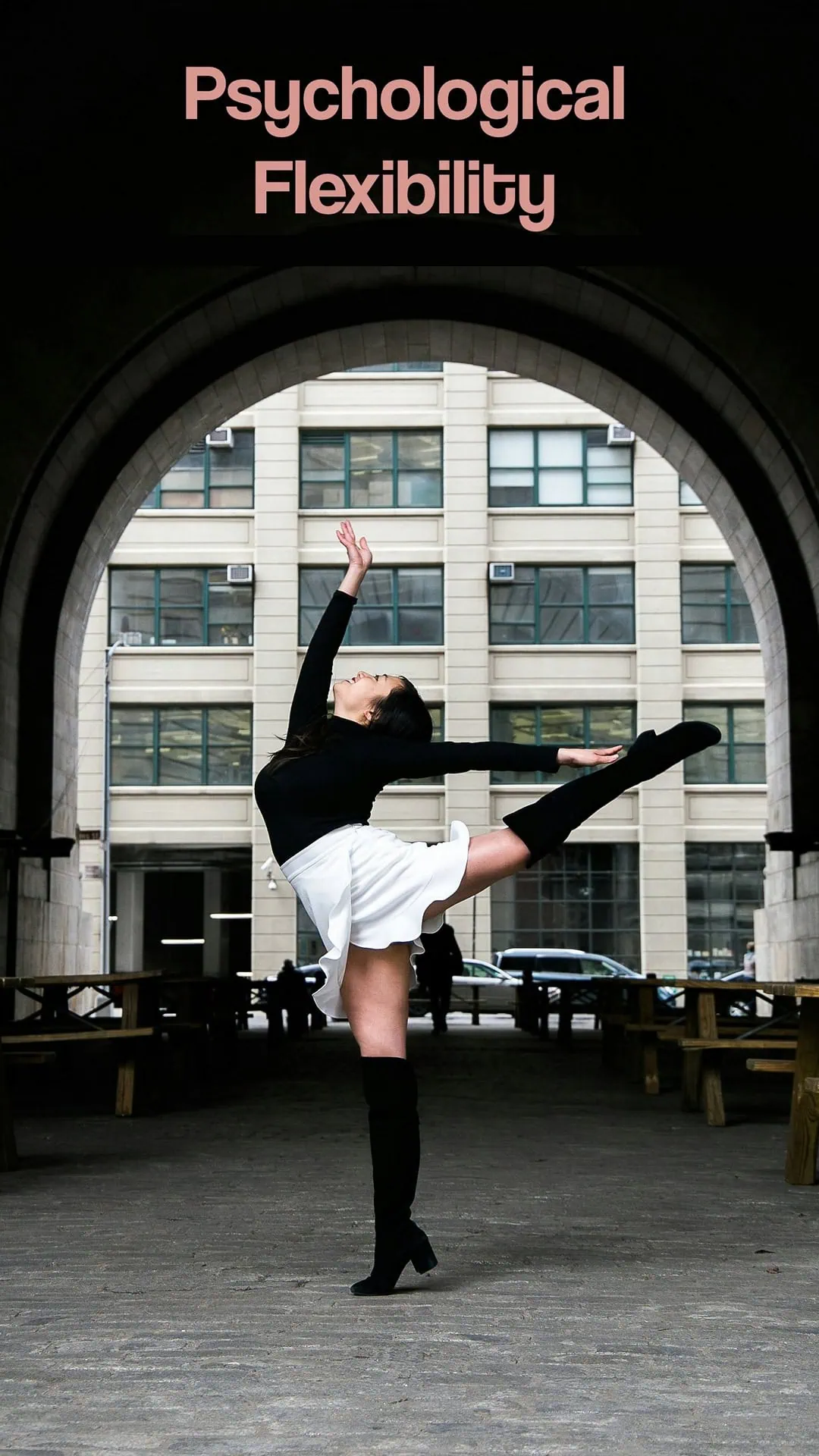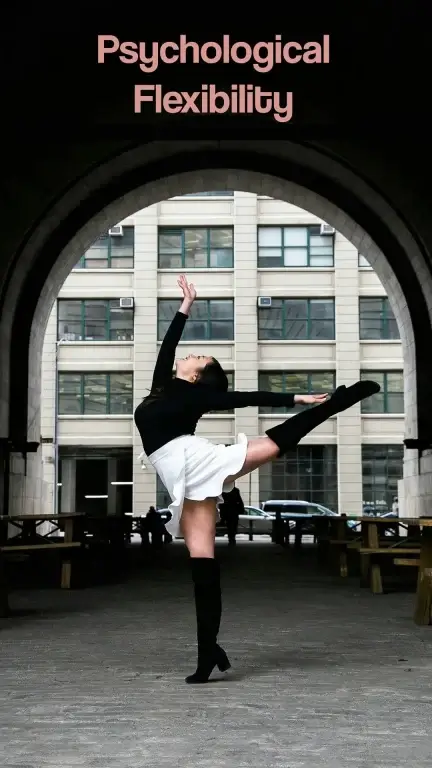Today's Sunday • 4 mins read
— By Dr. Sandip Roy.
Flexibility is the quality of bending easily without breaking.
Like a blade of grass that bends to the ground during a storm, and rises again when it’s over.
Psychological flexibility is our mental ability to adapt to tough and stressful situations to reach our life goals.
Because, every goal in life comes with a set of challenges — known and unknown, previously experienced and surprisingly new.
- Those who are flexible, they adjust their methods, wade through the stressful times, and become a new, hardier person.
- But those who are unwilling or unable to change their ways and outlook, either sink or stall in the doldrums.
This flexibility is seen as a key part of good mental health in a type of therapy called acceptance and commitment therapy (ACT).
Hayes & Luoma (2006) define psychological flexibility as “the ability to change or persist with functional behavioral classes when doing so serves valued ends.”
It means, a flexible person can change their actions, or keep doing what is helpful, to achieve what they value in life. They can recognize the specific situations where being flexible is vital for their well-being.

So, when faced with challenges that could get in the way of living a life that matters to them, psychologically flexible people respond in these two ways:
- spot the necessity to adapt, and
- take pains to change and adapt.
Research shows that being flexible can improve your mental well-being and help you change your behavior for the better.
By the way, Hope is similar to psychological flexibility.
Hope in positive psychology means believing that you can work towards goals (agency) and if things get tough, you can think about and try alternate options (pathways).
However, unlike psychological flexibility, hope theory does not specifically focus on uncomfortable emotions and other forms of distress as barriers to stop people from achieving their goals.
How To Build Psychological Flexibility
Here are 6 ways to increase your psychological flexibility:
1. Practice Mindful Awareness
- Develop the habit of observing thoughts and emotions without judgment
- Notice when you’re being rigid in your thinking or reactions
- Pay attention to your body’s responses in different situations
- Use mindfulness meditation to strengthen this skill
2. Expand Your Emotional Vocabulary
- Learn to identify and label emotions with greater precision
- Practice discerning similar emotions (e.g., anxiety vs. excitement)
- Keep an emotion journal to track patterns
- Express feelings more accurately to others
3. Deliberately Vary Your Responses
- Experiment with different coping strategies in similar situations
- Challenge yourself to respond in new ways to familiar triggers
- Practice stepping back before reacting automatically
- Ask yourself, “What’s another way I could handle this?”
4. Build Value-Based Decision-Making
- Clearly identify your personal values
- Check if your reactions align with these values
- Make conscious choices based on what matters most to you
- Practice tolerating discomfort when acting on values
5. Develop Social Adaptability
- Notice how different people respond to different communication styles
- Practice adjusting your approach based on social feedback
- Expose yourself to diverse social situations
- Learn from people who handle social situations well
6. Create “If-Then” Plans
- Anticipate challenging situations
- Prepare multiple response options in advance
- Consider context when choosing strategies
- Regular review and update these plans based on what works
Each of these can be hiked gradually. Start with lower-stakes situations and build up to more challenging ones. The key is practice and patience.
Final Words
Psychological flexibility comes from social psychology concepts like self-control, hope theory, and emotion regulation.
However, since the term was first introduced, it has mainly been studied in the context of Acceptance and Commitment Therapy (ACT), whose practitioners have shown it to improve mental health and well-being.
Right now, psychological flexibility is primarily associated with just one therapeutic approach. However, its potential uses may go beyond just that.
√ Also Read: How To Cope With “Why Does No One Understand Me?”
√ Please spread the word if you found this helpful.
• Our Story!
» You deserve happiness! Choosing therapy could be your best decision.
...
• Disclosure: Buying via our links earns us a small commission.
